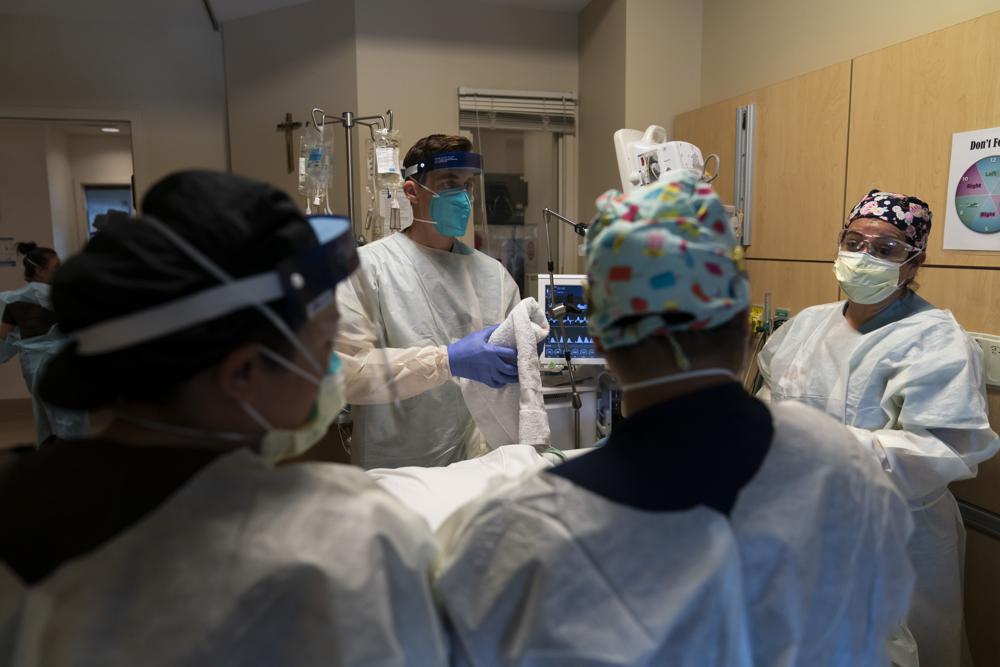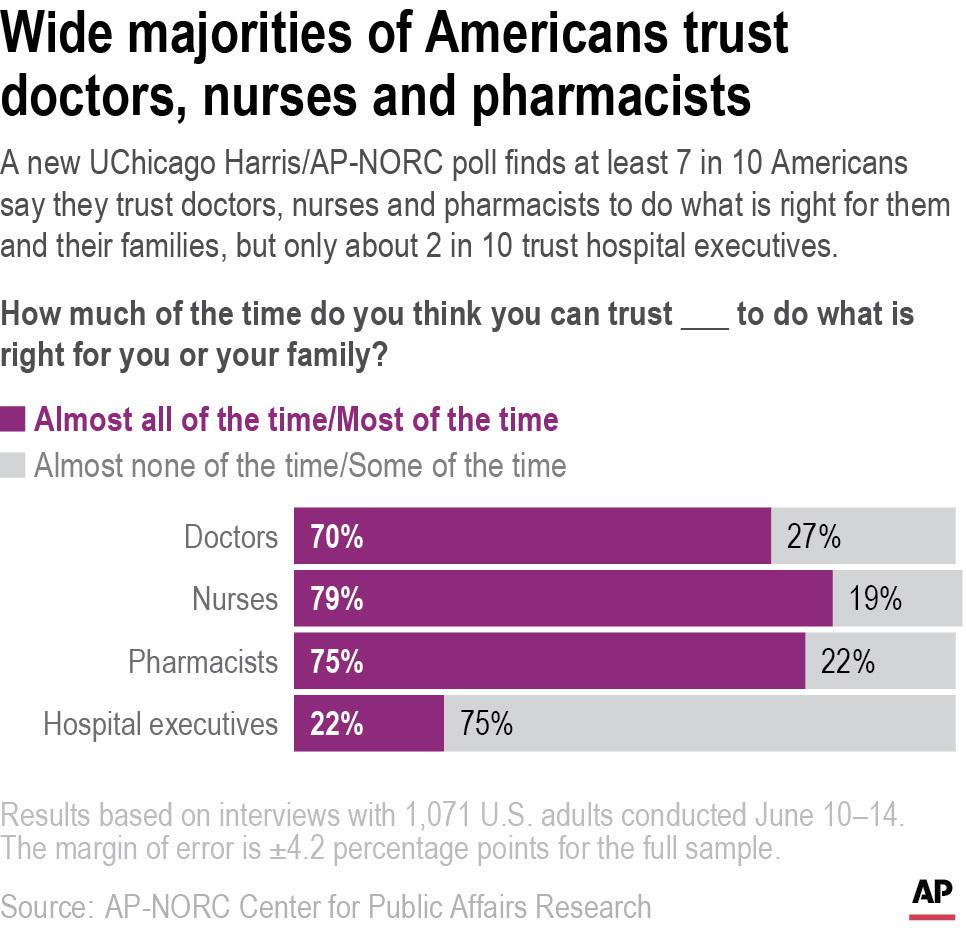
By Emily Swanson and Tom Murphy | The Associated Press
August 10, 2021
WASHINGTON (AP) — Most Americans have high trust in doctors, nurses and pharmacists, a new poll finds.
Researchers say that trust could become important in the push to increase COVID-19 vaccinations, as long as unvaccinated people have care providers they know and are open to hearing new information about the vaccines.
At least 7 in 10 Americans trust doctors, nurses and pharmacists to do what’s right for them and their families either most or all of the time, according to the poll from the University of Chicago Harris School of Public Policy and The Associated Press-NORC Center for Public Affairs Research.
The poll shows high levels of trust among both Democrats and Republicans; men and women; and white, Black and Hispanic Americans.
When people get treatment or a service from a doctor or a nurse, they start building trust and then tend to return to those providers when they need more help or have questions about a health issue, said Michelle Strollo, a senior vice president in NORC’s Health Research Group.
“Public health officials should really look to doctors, nurses and pharmacists to be the megaphone to deliver the message of the importance of getting vaccinated,” she said.
Polling from the nonprofit Kaiser Family Foundation in June also showed people trusted doctors for information about the vaccine more than other sources like the Centers for Disease Control and Prevention and Dr. Anthony Fauci, the U.S. government’s top infectious disease expert.
COVID-19 case levels are soaring across the country, driven by a highly contagious virus variant that mostly infects unvaccinated people, according to public health experts. President Joe Biden and others have pleaded with Americans to get the shots.

The COVID-19 vaccines have been widely available since spring, and the CDC reports that 71% of U.S. adults have received at least one dose.
Recently retired cardiologist Paul Vaitkus said he encouraged many of his patients, some of whom have been seeing him for years, to get the vaccine due to their health conditions. He thinks they listened to him.
“As a doctor, my patient knows me and they sized me up eye to eye,” the 62-year-old Gurnee, Illinois, resident said. “They know that I’m honest.”
Care providers could help encourage people to get vaccines, but the country’s fragmented health care system presents an obstacle.
Vaccination rates are low among the uninsured, noted Liz Hamel, director of public opinion and survey research for Kaiser.
“Those are the same people who are less likely to be in regular health care, to have those interactions with doctors and providers,” she said.
The same holds true for younger adults, who also have low vaccination rates. They are less likely to see a doctor regularly or get preventive care like annual checkups.
Plus, just getting someone into a doctor’s office or drugstore offers no guarantee that the patient will become vaccinated.
Hamel noted that attitudes toward the shots have become so politicized that people who trust a doctor to give them advice about other issues may not be open to hearing more about the vaccines.
“I think some people, based on politics, have completely closed off,” she said.
Doctors earn broad trust from the American public, and a slim majority are in favor of federal funding for increasing the number of doctors, according to the AP-NORC poll. But only about 2 in 10 support government funds for increasing doctors’ pay. Half of Americans say doctors are paid about right.
However, most Americans, including majorities of both Democrats and Republicans, think nurses and health care aides are underpaid.
Even as the COVID-19 pandemic continues to plague the U.S., the poll finds no significant shifts in opinions about health care policies, including the Affordable Care Act, a single payer health system or a public option.
Murphy reported from Indianapolis.
The AP-NORC poll of 1,071 adults was conducted from June 10 to June 14. It used a sample drawn from NORC’s probability-based AmeriSpeak Panel, which is designed to be representative of the U.S. population. The margin of sampling error for all respondents is plus or minus 4.2 percentage points.
